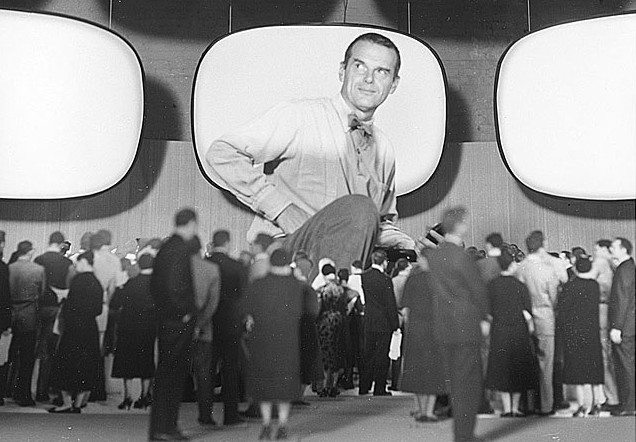- Don’t blame Tim Berners-Lee, not for cat memes, spam or even the way his gift connected and emboldened the absolute worst among us. A hammer is a weapon or a tool depending on how you swing it, and like almost any invention, the World Wide Web is as good as people utilizing it. A lot of us aren’t very good right now.
- Marshall McLuhan feared the Global Village even as he was heralding its arrival 50 years ago. He believed all this closeness, these worlds colliding, could explode. He encouraged us to study the new arrangement–“why not devote your powers to discerning patterns?”–lest we’d be overrun by them. Plenty among us know the issues at hand, but they’re not easy to address.
- There’s no doubt the Internet does a lot of good and some of its worst excesses can be curbed, but the trouble with this tool isn’t that we’re not yet familiar enough with decentralized media and soon enough we’ll have a handle on the situation. The problems seem inherent to the medium, which is a large-scale experiment in anarchy, and just as sure as we correct some of bugs, others will take flight.
- During the Arab Spring there was much debate over whether the Internet aas actually useful in toppling states. I think it is, regardless of whether the nation or usurpers happen to be good or bad.
In a Guardian essay, Berners-Lee offers biting criticism of his pet project, suggesting fixes. I wonder though, as with Facebook promising to address its shortcomings, if the system isn’t built for mayhem. That may be especially true since most citizens don’t seem very bothered by handing over their personal information in exchange for sating some psychological needs, offering their own Manhattan for some shiny beads.
An excerpt:
1) We’ve lost control of our personal data
The current business model for many websites offers free content in exchange for personal data. Many of us agree to this – albeit often by accepting long and confusing terms and conditions documents – but fundamentally we do not mind some information being collected in exchange for free services. But, we’re missing a trick. As our data is then held in proprietary silos, out of sight to us, we lose out on the benefits we could realise if we had direct control over this data and chose when and with whom to share it. What’s more, we often do not have any way of feeding back to companies what data we’d rather not share – especially with third parties – the T&Cs are all or nothing.
This widespread data collection by companies also has other impacts. Through collaboration with – or coercion of – companies, governments are also increasingly watching our every move online and passing extreme laws that trample on our rights to privacy. In repressive regimes, it’s easy to see the harm that can be caused – bloggers can be arrested or killed, and political opponents can be monitored. But even in countries where we believe governments have citizens’ best interests at heart, watching everyone all the time is simply going too far. It creates a chilling effect on free speech and stops the web from being used as a space to explore important topics, such as sensitive health issues, sexuality or religion.•
Tags: Tim Berners-Lee

